Coronavirus world updates: Worldwide COVID death toll passes 3.3 million
Coronavirus has killed at least 3,346,813 people since the outbreak emerged in China in December 2019, a tally from official sources has revealed.
Coronavirus
Don't miss out on the headlines from Coronavirus. Followed categories will be added to My News.
The novel coronavirus has killed at least 3,346,813 people since the outbreak emerged in China in December 2019, according to a tally from official sources.
At least 161,081,960 cases of coronavirus have been registered.
The vast majority have recovered, though some have continued to experience symptoms weeks or even months later.
These figures are based on daily tolls provided by health authorities in each country and exclude later re-evaluations by statistical organisations, as has happened in Russia, Spain and Britain.
On Thursday, 13,797 new deaths and 752,620 new cases were recorded worldwide.
Based on latest reports, the countries with the most new deaths were India, with 4000 new deaths, followed by Brazil with 233 and United States with 818.
The United States is the worst-affected country with 584,487 deaths from 32,852,998 cases.
After the US, the hardest-hit countries are Brazil with 430,417 deaths from 15,433,989 cases, India with 262,317 deaths from 24,046,809 cases, Mexico with 219,901 deaths from 2,375,115 cases, and the United Kingdom with 127,651 deaths from 4,444,631 cases.
The country with the highest number of deaths compared to its population is Hungary with 300 fatalities per 100,000 inhabitants, followed by Czech Republic with 279, Bosnia-Herzegovina with 273, Republic of North Macedonia with 248 and Montenegro with 247.
Europe overall has 1,104,114 deaths from 52,013,632 cases, Latin America and the Caribbean 970,963 deaths from 30,465,279 infections, and the United States and Canada 609,293 deaths from 34,162,890 cases.
Asia has reported 399,024 deaths from 31,531,540 cases, the Middle East 136,776 deaths from 8,193,022 cases, Africa 125,570 deaths from 4,669,916 cases, and Oceania 1073 deaths from 45,683 cases.
Since the start of the pandemic, the number of tests conducted has greatly increased, while testing and reporting techniques have improved, leading to a rise in reported cases.
However the number of diagnosed cases is only a part of the real total number of infections as a significant number of less serious or asymptomatic cases always remain undetected.
US KICKS OFF VACCINATIONS FOR TEENS
The campaign to immunise America’s 17 million adolescents aged 12-to-15 kicked off in full force on Thursday (local time), a key part of US President Joe Biden’s strategy to push the country close to herd immunity.
Across the country, kids lined up with their parents, eager to return to some semblance of their pre-pandemic lives.
“It will help me get back out more,” said Daniel Fox, a 13-year-old among the first in the door when the Javits Centre in New York City opened on Thursday morning (local time). “Online playdates are pretty fun, but it’s also fun to have an in-person playdate once in a while.”
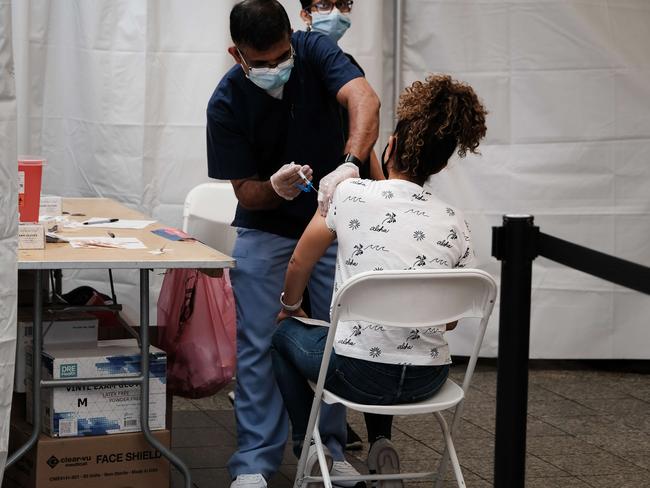
Fourteen-year-old twins Anaya and Jay Tsai also received their first doses. “I’ve been very much looking forward to this day for a while. It’s hugely important,” said their mother Purva Tsai, 47.
“I hope it means things will start to get back to normal for the kids and they can socialise with their friends.” Numbers were a little low at a vaccine site set up at the Walter E Washington Convention Center in the US capital.
Kandall Frederick, 15, was driven in by her mom from ahead of the school day. “I was excited,” she said. “I was the last one in the family to be vaccinated so now we will be all safe and sound, be on the go and do things more freely.”
A poll by the Kaiser Family Foundation that interviewed parents of 12-to-15-year-old’s in April found that three in ten were keen to get their children vaccinated right away, a quarter will wait to see how it’s working, a fifth will vaccinate only if their child’s school requires it, and the remaining quarter will refuse the vaccine.
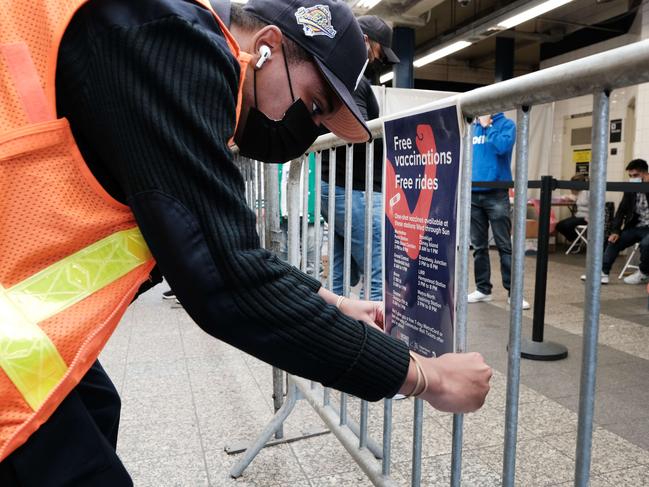
Teens are much less susceptible to COVID than older age groups, and the main reason to vaccinate them is to drive down transmission.
But extremely rare cases of severe COVID can still occur, as can a post-viral complication called multisystem inflammatory syndrome.
The American Academy of paediatrics has called this week’s authorisation of the Pfizer COVID vaccine an important tool for more schools to return to in-person learning this autumn.
It comes the US Centres for Disease Control and Prevention announced it was lifting mask-wearing requirements for people fully vaccinated against COVID-19.
“Anyone who is fully vaccinated can participate in indoor and outdoor activities, large or small, without wearing a mask or physical distancing,” said CDC director Rochelle Walensky.
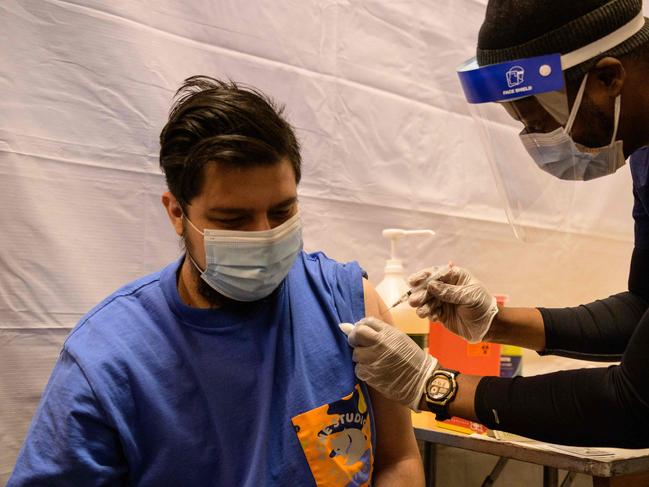
PANDEMIC ‘COULD HAVE BEEN AVOIDED’
The catastrophic scale of the COVID-19 pandemic could have been prevented, an independent global panel has concluded, but a “toxic cocktail” of dithering and poor co-ordination meant the warning signs went unheeded.
The Independent Panel for Pandemic Preparedness and Response (IPPPR) said a series of bad decisions meant COVID-19 went on to kill at least 3.3 million people so far and devastate the global economy.
Institutions “failed to protect people” and science-denying leaders eroded public trust in health interventions, the IPPPR said in its long-awaited final report.
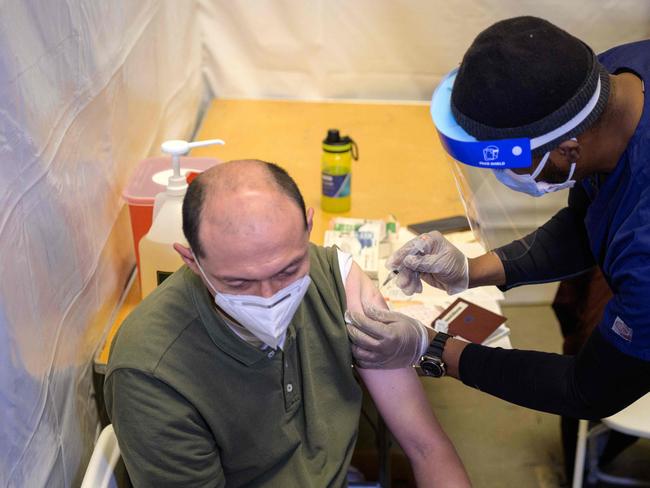
Early responses to the outbreak detected in Wuhan, China in December 2019 “lacked urgency”, with February 2020 a costly “lost month” as countries failed to heed the alarm, said the panel.
To tackle the current pandemic, it called on the richest countries to donate a billion vaccine doses to the poorest.
And the panel also called on the world’s wealthiest nations to fund new organisations dedicated to preparing for the next pandemic.
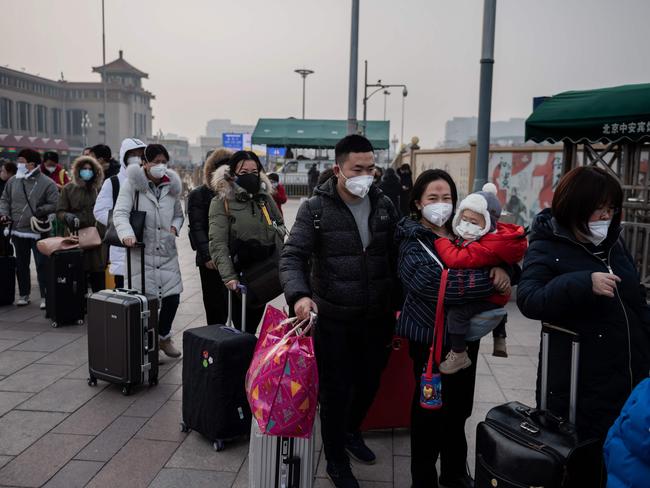
Requested by World Health Organisation (WHO) member states last May, the report, “COVID-19: Make it the Last Pandemic”, argued that the global alarm system needed overhauling to prevent a similar catastrophe.
“We have identified failures at every stage and we do believe that it could have been possible to prevent this pandemic,” panel co-chair and former Liberian president Ellen Johnson Sirleaf said.
“We cannot simply point to one individual who is ultimately responsible,” she said.
The report said the emergence of COVID-19 was characterised by a mixture of “some early and rapid action, but also by delay, hesitation, and denial.
“Poor strategic choices, unwillingness to tackle inequalities and an uncoordinated system created a toxic cocktail which allowed the pandemic to turn into a catastrophic human crisis.”
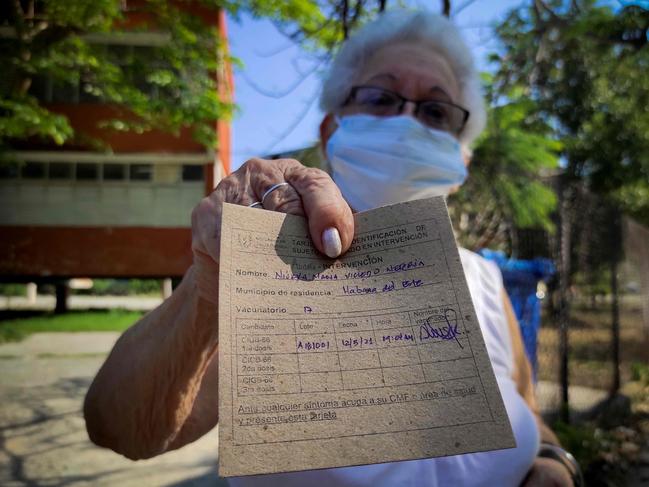
The threat of a pandemic had been overlooked and countries were woefully unprepared to deal with one, the report found.
The panel said the WHO could have declared the situation a Public Health Emergency of International Concern (PHEIC) — its highest level of alarm — on January 22, 2020.
Instead, it waited eight more days before doing so.
Nevertheless, given countries’ relative inaction, “we might still have ended up in the same place”, said former New Zealand prime minister Helen Clark, the report’s other chairwoman.
It was only in March after the WHO described it as a pandemic — a term that is not officially part of its alert system — that countries were jolted into action.
As for the initial outbreak, “there were clearly delays in China — but there were delays everywhere”, she added.
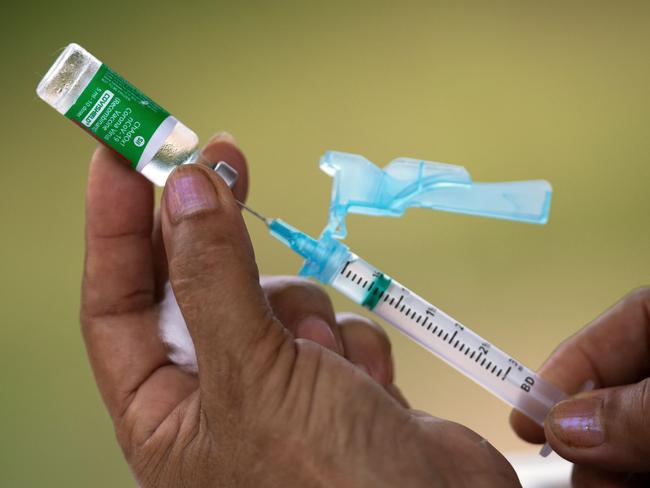
In the near term, the panel said rich, well-vaccinated countries should provide the 92 poorest territories in the Covax scheme with at least one billion vaccine doses by September 1, and more than two billion by mid-2022.
G7 industrialised nations should pay 60 per cent of the $19 billion ($15 billion euros) required to fund vaccines, diagnostics and therapeutics via the WHO’s Access to Covid Tools Accelerator program in 2021, it added.
Fellow G20 nations should provide the rest — and Ms Clark said there were positive signs emanating from the whole group.
The WHO and the World Trade Organisation should also get major vaccine-producing countries and manufacturers to agree voluntary licensing and technology transfers for COVID-19 vaccines, the panel said.
“If actions do not occur within three months, a waiver of … intellectual property rights should come into force immediately.
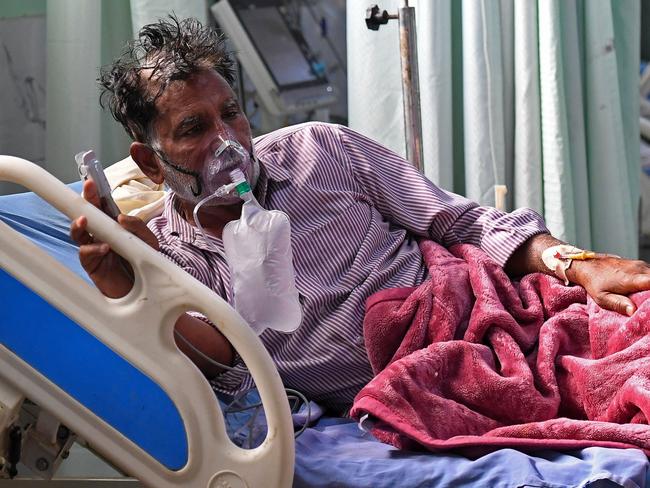
To tackle future outbreaks and pandemics, the panel called for a Global Health Threats Council made up of world leaders, plus a pandemic convention.
The G20 should also create an International Pandemic Financing Facility, able to spend $5-10 billion a year on preparedness, with $50 to $100 billion ready to roll in the event of a crisis.
“Ultimately, investing billions in preparedness now will save trillions in the future, as the current pandemic has so clearly illustrated,” Ms Clark told reporters.
The panel also proposed an overhaul of the WHO to make it less cautious and give it more authority to send expert missions into countries immediately without waiting for their approval.
“This must be the last pandemic to cause such devastation to human life, societies and economies around the world,” Ms Clark said.
US FATALITIES HIT 10-MONTH LOW
COVID-19-related deaths have reached a promising new low in the United States.
The US, which was one of the hardest hit by the pandemic in 2020, is now averaging 600 deaths per day, its lowest count in 10 months.
At the height of its second wave in late 2020, thousands of Americans were dying each day. But following a rapid vaccine rollout and the arrival of warmer weather, the States is now seeing a promising drop-off in fatality rates.
Dr. Amesh Adalja, an infectious disease specialist at Johns Hopkins University, said the promising new low was evidence of vaccine efficacy.
“The primary objective is to deny this virus the ability to kill at the rate that it could, and that has been achieved,” Adalja told the New York Post.
Around 45 per cent of the US’s adult population has been fully vaccinated.
Justin Lessler, an associate professor of epidemiology at Johns Hopkins, said that while the current numbers are promising, “India is an important cautionary tale” as to how quickly things can change.
“If there is a right combination of vaccine hesitancy, potentially new variants and quickly rolling back control measures that comes together, we could potentially screw this up and have yet another wave that is completely unnecessary at this point,” Lessler said.
VACCINATIONS EASED US, UK PANDEMIC CRISIS
Vaccinations have helped to ease the pandemic crisis in the United States and Europe.
The European Commission on Wednesday upgraded its economic growth forecast for this year and 2022, to 4.2 and 4.4 per cent, in part thanks to faster inoculations.
Vaccine frontrunner Britain reported a 2.1-per cent jump in GDP in March as it gradually emerges from lockdown.
London will nevertheless launch an inquiry next year into the handling of the pandemic by Prime Minister Boris Johnson’s government, after the UK suffered the world’s fifth-highest official toll so far at 127,000 deaths.
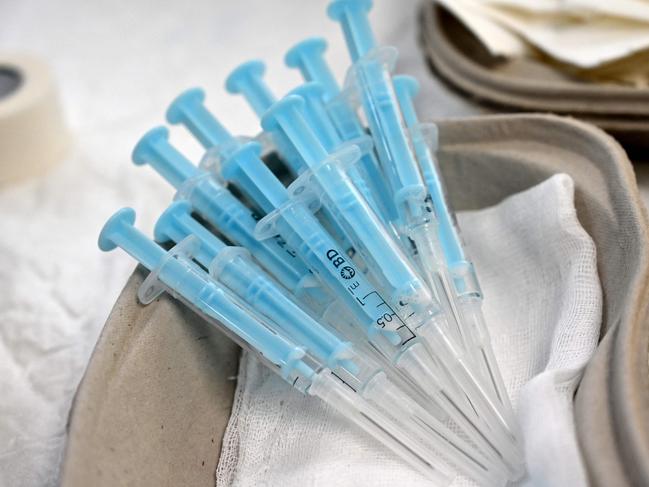
As governments eye a return to mass travel, Spain said it was hoping to welcome 45 million tourists this year and Germany said it would relax quarantine rules for holiday-makers returning from some EU neighbours.
Meanwhile many less well-off countries remain starved of vaccine doses, especially as major manufacturer India has for now frozen exports.
Bangladesh on Wednesday took delivery of half a million doses from China. “A friend in time of need is a friend indeed,” Bangladesh’s health minister Zahid Maleque said.
As China’s vaccine diplomacy push continues, Senegal also announced it would receive 300,000 doses from Beijing.
Pointing to “unwillingness to tackle inequalities” as a key factor worsening the pandemic, the IPPPR said intellectual property rights for vaccines should be waived if doses are not delivered to poorer countries by September.
But hesitancy is also limiting vaccinations in some parts of the world, with a poll showing that most people in vaccine-sceptical Russia do not want the jab.
MORE NATIONS SUSPEND ASTRAZENECA VACCINE
Meanwhile, Sao Paulo, Rio de Janeiro and other Brazilian states have suspended immunisation of pregnant women with the AstraZeneca coronavirus vaccine on the advice of the national health regulator after a reported death.
The daily newspaper Folha de S.Paulo said the health ministry was investigating the death of a woman in Rio de Janeiro who had received the vaccine.
The ministry did not confirm the report, but the Anvisa regulator late Monday recommended the “immediate suspension” of AstraZeneca vaccines for pregnant women in line with its “constant monitoring of adverse events with anti-Covid vaccines used in the country.”
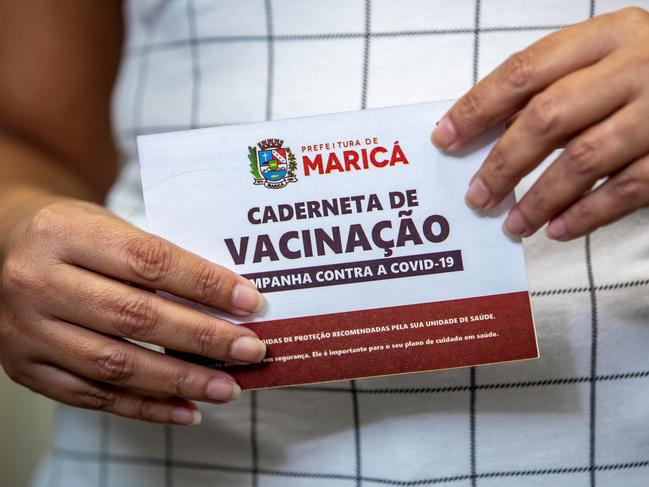
The health secretary of Rio said in a statement it had been decided to suspend application of the vaccine to pregnant women and new mothers in the state capital “until the investigation of the case of an adverse event in a pregnant woman is completed by the Ministry of Health.” Other municipalities in the state adopted the same measure.
The state of Sao Paulo said it would stop vaccinating women with comorbidities. A report said at least 13 of Brazil’s 27 states are taking similar steps. Several EU countries have restricted AstraZeneca shots to older people only, after a link was made between the vaccine and very rare but often fatal blood clots coupled with low platelet levels.
Brazil is immunising the bulk of its population with China’s CoronaVac, with limited doses of AstraZeneca and Pfizer vaccines.
The Latin American giant of 212 million people has so far given one shot to 15 per cent of its population, and two shots to seven per cent.
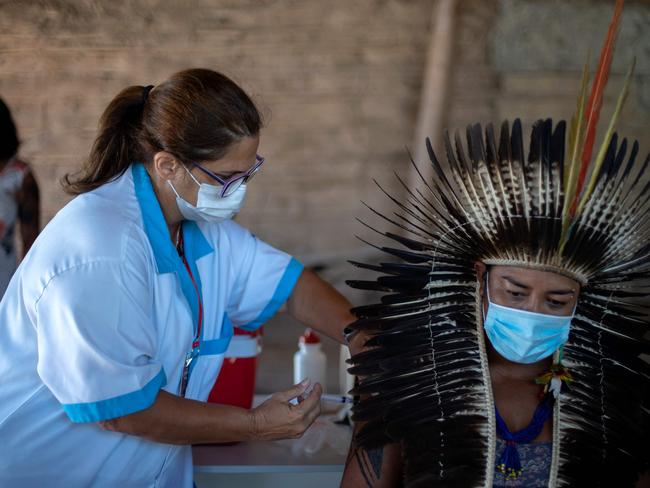
It comes as Slovakia on Tuesday, local time, suspended first doses of the AstraZeneca COVID-19 vaccine after earlier signalling it was investigating the case of a vaccinated patient who died from a blood clot.
“Only people waiting for their second dose of this vaccine are currently being vaccinated with AstraZeneca,” the health ministry said in a statement. “Using this company’s vaccine for first-time doses has been suspended.”
Health Minister Vladimir Lengvarsky announced last week that Slovakia would review its vaccination strategy following a fatal blood clot in a patient who received an AstraZeneca jab.
Several other European Union countries have restricted AstraZeneca shots to older people only, after a link was made between the vaccine and very rare but often fatal blood clots coupled with low platelet levels.
Denmark has abandoned the vaccine entirely and experts in Britain have recommended people under 40 be given an alternative.
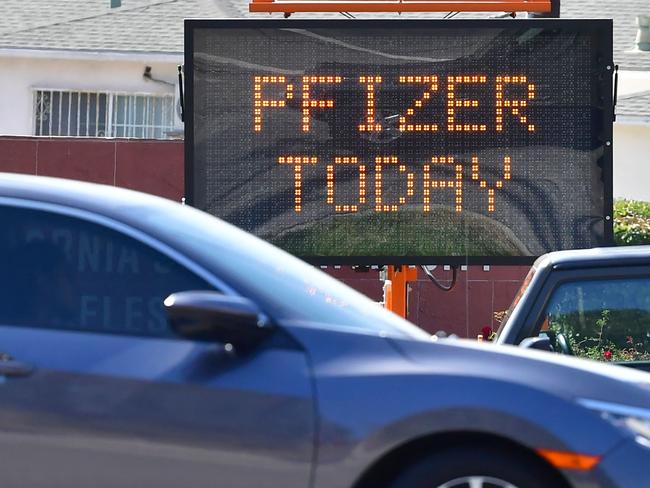
EU SUES ASTRA, PFIZER GETS THE NOD FOR KIDS
Brussels is now suing the British-Swedish pharma giant to force it to deliver the 90 million vaccine doses it promised the bloc before July.
“We want the court to order the company to deliver 90 million additional doses, in addition to the 30 million already delivered in the first quarter,” European Commission spokesman Stefan DeKeersmaecker told a media conference.
The suit is the result of a row between Brussels and AstraZeneca over a shortfall and the commission has launched two emergency legal actions against the company in a Belgian court.
The European Commission has the backing of the 27 EU member states in the case alleging breach of contract.
It comes as the United States pharmaceutical regulator has authorised the Pfizer-BioNTech vaccine for children aged 12 to 15 as the country aims to speed up its pandemic recovery.
The head of the European Medicines Agency has said the same jab could be approved in the EU for 12- to 15-year-olds soon, perhaps as early as this month.
Last week, Canada was the first nation in the world to approve the use of the jab for children aged 12 and up.
More Coverage
Originally published as Coronavirus world updates: Worldwide COVID death toll passes 3.3 million




